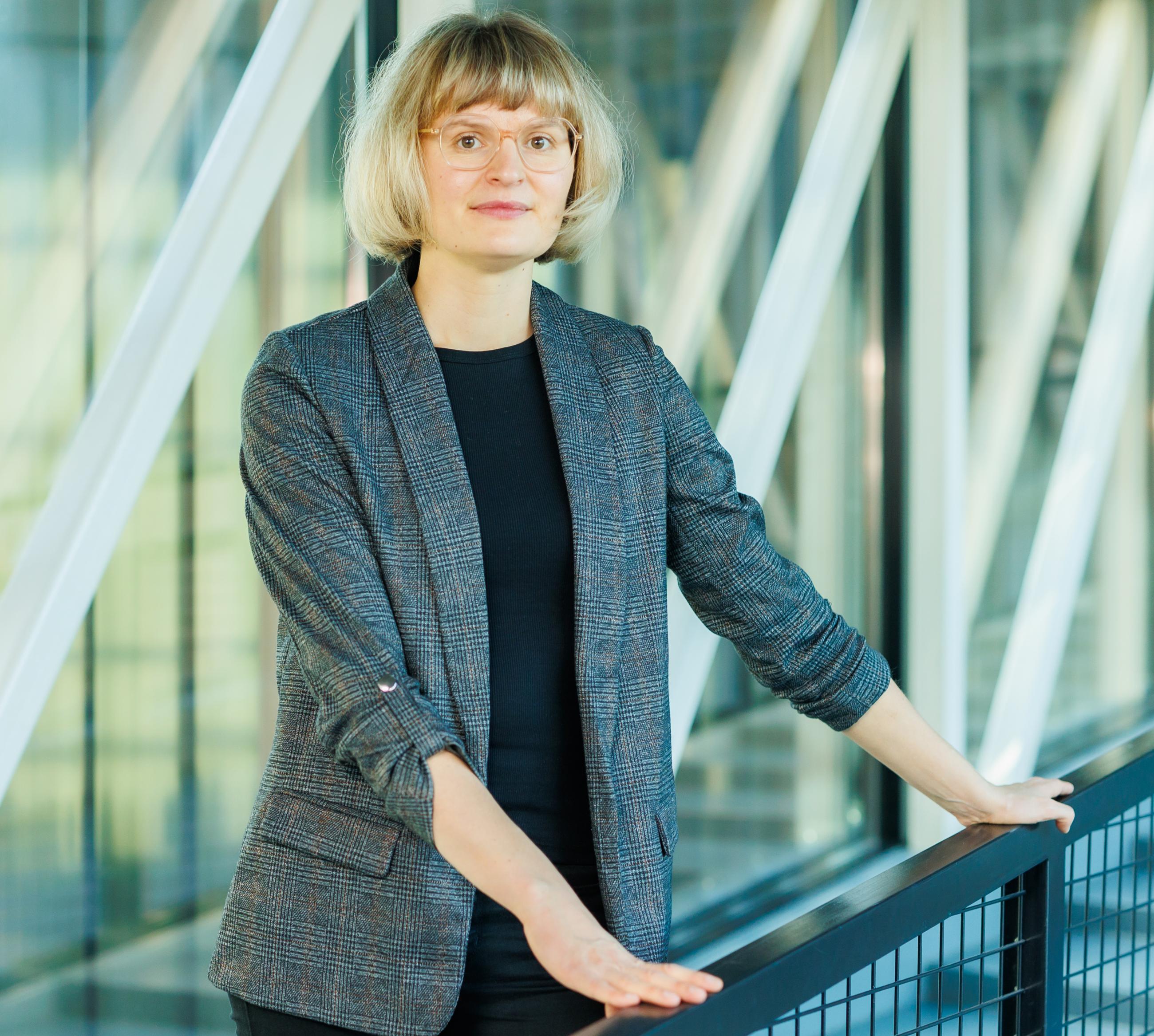Liisa Kaljula: In gathering materials in Moscow, it felt as though I had been transported back to the time period I was researching
Liisa Kaljula, a doctoral student at the School of Humanities of Tallinn University, defended her doctoral thesis entitled ‘Estonian Sots Art! Reflections of Soviet Modernity in Estonian Art under Late Socialism’ in July this year.

How did you come up with this topic during your studies?
My research topic matured and was refined during my studies. Looking back, I think that narrowing down the research problem was a very important part of the thesis writing process. It was only in the second or third year of my doctoral studies that I gradually realised that if I wanted to work in the form of a monograph, I had to have a really comprehensive and well-focused topic. Every conference or article related to my thesis brought me closer to this goal because until you formulate or express your thoughts, it is very difficult to look at them from afar or give feedback.
Writing a doctoral thesis is a huge undertaking and definitely needs constant self-motivation. What’s your trick? How were you able to consistently work on it to achieve a successful final result?
The most important thing, of course, is to choose a topic that is close to your heart and that you are passionate enough about to still find interesting years later. I was able to use thesis-related travel as an opportunity to combine the enjoyable with the compulsory, as my research material was based in New Jersey, New York and Moscow. In retrospect, I am grateful to have chosen this topic as it widened my horizons in comparison with an Estonian-centric topic and allowed me to work internationally.
Please describe a memorable or funny event that happened while you were writing your thesis.
While working at the Fine Arts Library in Moscow, I found myself back in the period that my doctoral thesis was about: the Late Socialist period. Ordering a copy of an article meant filling in endless bureaucratic forms which culminated in being summoned to an adjoining room where, under the watchful eye of three librarians, the payment was settled in roubles first, the purchase forms stamped and only then were the copies handed over. Seeing this made me think about how easy it has become for historians to conduct research in Estonia’s archives and libraries where information is readily available.
How is your research going to change the world?
The main change proposed by my thesis is to eliminate the dominant epithetic languages in favour of a wider range of epithetic languages. The history of Estonian art during the Soviet period is a good example of how the use of Western terminology has never been questioned because it is seen as universal. But it is far from universal because it has emerged in a very specific socio-historical context, which is, moreover, very removed from the Soviet Estonian context. This is just one example of how firmly Western modernity established itself in Eastern Europe after the fall of the Iron Curtain.
How well are the voices of scientists and young researchers heard in our society?
Scientists are being heard perhaps more than ever before as their roles in managing the current crisis are vital. However, this crisis has also exposed a rather large segment of society that doesn’t believe scientists have any authority. Young researchers should perhaps make themselves more visible in the media by writing occasional articles and opinion pieces, getting involved in TV programmes and opinion festival debates. Ultimately, the goal is to allow different voices to be heard as well as to get people into the habit of listening and expecting well-informed opinion leaders to speak out in public.
What are the most important values and beliefs that you live by?
That sounds like a provocation! No scientist should want to promote their values and beliefs.
Please tell us about a book that you recently read and would recommend to others. Why would you recommend it?
I recommend reading Boris Groys’ book The Total Art of Stalinism: Avant-Garde, Aesthetic Dictatorship, and Beyond, published by Tallinn University Press. This book describes a spectacular attempt in the 20th century to elevate society to the status of a work of art. It also nicely illustrates why such efforts tend to eventually fall